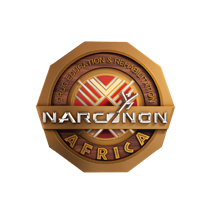Alcohol and Genetics: A Complex Relationship and the Power of Recovery

Alcohol consumption has been a part of human culture for centuries. While its social and recreational uses are well known, the interplay between alcohol and our genetic makeup is a subject of ongoing research. Specifically how the individual variations of our genetics can influence our response to alcohol and ultimately contribute to our risk of becoming addicted.
The Role of Genetics in Alcohol Addiction
Our genes play a significant role in determine how our bodies metabolize alcohol. Specific genes encode enzymes that break down alcohol into less harmful substances. Variations in these genes can lead to differences in alcohol metabolism rates. Some individuals may metabolize more slowly, leading to higher blood-alcohol concentrations and increased risk of alcohol-related problems, others of course, the opposite. Genetic factors can also influence our sensitivity to the adverse effects of alcohol. Certain generic variations may make individuals more susceptible to the seeming “rewarding” effects of alcohol, which in turn increasing the likelihood of developing alcohol dependence.
Research has identified several genes that may contribute to the development of alcohol use disorders. These genes are involved in various biological processes, including neurotransmitter function, reward pathways, and alcohol metabolism. However, it is important to note that no single gene determines whether an individual will develop an alcohol use disorder. Rather, it is the combination of multiple genetic factors, personality and environmental influences that ultimately determine the level of risk. Meaning, as much as our genetics may influence our risks, they aren’t the only factor to consider. Alcohol addiction is a complex condition influenced by both genetic, personality and environmental factors. A common example of an environmental factor is an individual with a family history of alcohol abuse.
Recovery is Possible
While genetic factors play a role in alcohol addiction, it is crucial to remember that recovery is possible. Narconon Africa offers a drug-free, evidence-based rehabilitation program that addresses the root causes of addiction, empowering individuals to overcome their challenges and lead fulfilling lives. Narconon Africa utilizes a unique approach that combines detoxification, withdrawal management, and life skills training. Through a series of carefully designed exercises and activities, individuals learn how to address the underlying factors that contribute to addiction, such as negative thinking patterns, poor decision-making and lack of self-esteem.
More About Narconon
Narconon’s drug-free detoxification program helps individuals eliminate drug residues from their bodies, restoring physical and mental wellbeing. The New Life Detoxification program focuses on removing these residues from the bodies fatty tissues, leading to a reported greater well-being and mental clarity. Narconon’s comprehensive life skills programs equips individuals with the tools they need to live drug-free lives, including effective communication, problem-solving and decision-making skills. Combining these cutting edge techniques with a supportive and compassionate environment, Narconon Africa empowers individuals to break free from the grip of addiction and build a brighter future.
Source:
https://pmc.ncbi.nlm.nih.gov/articles/PMC4872611/

